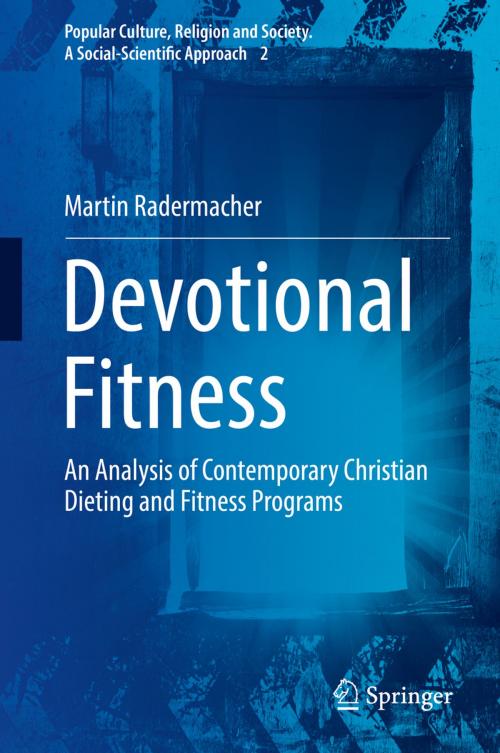Devotional Fitness
An Analysis of Contemporary Christian Dieting and Fitness Programs
Nonfiction, Social & Cultural Studies, Social Science, Sociology, Marriage & Family, Religion & Spirituality| Author: | Martin Radermacher | ISBN: | 9783319498232 |
| Publisher: | Springer International Publishing | Publication: | January 5, 2017 |
| Imprint: | Springer | Language: | English |
| Author: | Martin Radermacher |
| ISBN: | 9783319498232 |
| Publisher: | Springer International Publishing |
| Publication: | January 5, 2017 |
| Imprint: | Springer |
| Language: | English |
This book examines evangelical dieting and fitness programs and provides a systematic approach of this diverse field with its wide variety of programs. When evangelical Christians engage in fitness and dieting classes in order to “glorify God,” they often face skepticism. This book approaches devotional fitness culture in North America from a religious studies perspective, outlining the basic structures, ideas, and practices of the field. Starting with the historical backgrounds of this current, the book approaches both practice and ideology, highlighting how devotional fitness programs construe their identity in the face of various competing offers in religious and non-religious sectors of society. The book suggests a nuanced and complex understanding of the relationship between sports and religion, beyond ‘simple’ functional equivalency. It provides insights into the formation of secular and religious body ideals and the way these body ideals are sacralized in the frame of an evangelical worldview.
This book examines evangelical dieting and fitness programs and provides a systematic approach of this diverse field with its wide variety of programs. When evangelical Christians engage in fitness and dieting classes in order to “glorify God,” they often face skepticism. This book approaches devotional fitness culture in North America from a religious studies perspective, outlining the basic structures, ideas, and practices of the field. Starting with the historical backgrounds of this current, the book approaches both practice and ideology, highlighting how devotional fitness programs construe their identity in the face of various competing offers in religious and non-religious sectors of society. The book suggests a nuanced and complex understanding of the relationship between sports and religion, beyond ‘simple’ functional equivalency. It provides insights into the formation of secular and religious body ideals and the way these body ideals are sacralized in the frame of an evangelical worldview.















